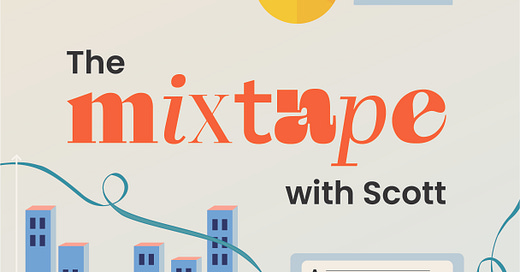I’ll keep it brief. I started a podcast because I thought it would be fun. Covid had an unusual effect which is that through social distancing, it caused an increase in person-to-person communications through Zoom and the like. I noticed it because I switched from doing in-person workshops to online workshops. Demand grew, and cost structure of produci…
Keep reading with a 7-day free trial
Subscribe to Scott's Mixtape Substack to keep reading this post and get 7 days of free access to the full post archives.





